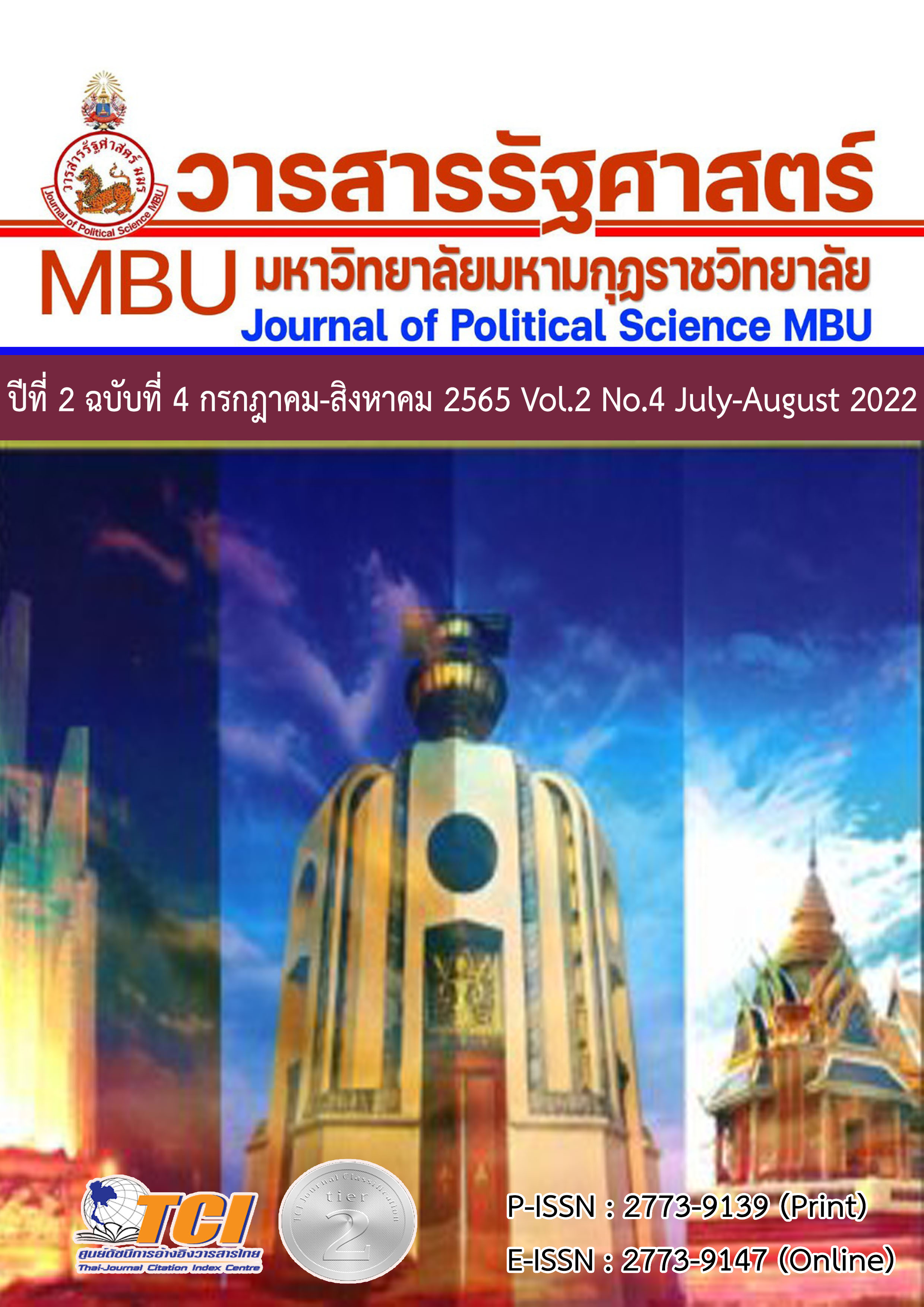COMMUNICATION PROCESS FOR REINFORCEMENT PEACE OF SOCIAL LEADER IN THAILAND’S THREE SOUTHERN BORDER PROVINCES
Main Article Content
Abstract
The objectives of this research were 1) to study the communication process to promote peace of social leaders in the 3 southern border provinces 2) to study the problems and obstacles in the communication process for peace building of social leaders in the 3 southern border provinces 3) to Propose ways to promote peace among social leaders in the three southern border provinces. It Is a qualitative research. The sample consisted of 21 high-ranking religious leaders and community leaders. Data were collected by observation and in-depth interviews using descriptive data analysis. The results showed that 1) communication process to promote peaceful social leadership in the three southern border provinces was found. that both Thai, Buddhist and Muslim leaders have the idea of communicating with each other based on mutual understanding. creative communication with each other. Having the right attitude or feeling towards one another is a real practice of living together. communication based on understanding of cultural background leads to peaceful coexistence 2) Problems and obstacles in the communication process to promote peace of social leaders in the three southern border provinces was found that The fact that both Thai Buddhists and Muslims have different cultures, lifestyles and thought cultures as a basis may be a problem and obstacle in communicating our feelings of being within our minds. They have certain attitudes with prejudice. These paranoias and disbelief are the barriers to communication in order to create a peaceful society in the area. 3) The research team has presented recommendations for the use of a peaceful communication process by the leaders of the two groups into six sub-themes: intercultural communication; social participation educating learning multicultural society peaceful communication and building relationships with leaders.
Article Details

This work is licensed under a Creative Commons Attribution-NonCommercial-NoDerivatives 4.0 International License.


